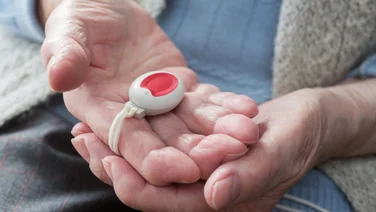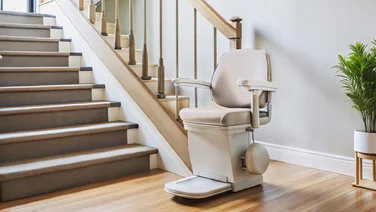We explain what’s involved in getting a dental implant, as well as benefits, risks and how to find the right dental surgeon.
Dental implants are an advanced, long-term solution to replace one or several missing teeth. Designed to look, feel and function like natural teeth, dental implants are surgically anchored into the jawbone with a titanium screw, providing a sturdy base or ‘tooth root’ for replacement teeth. They are a great alternative to traditional bridges and dentures.
Once fitted, dental implants gradually fuse with the surrounding bone to ensure the tooth is secure and fixed. The replacement tooth (a crown) can then be placed on top of the implant when fully healed. The whole process usually takes around 4-12 months, depending on the preparation you need before the procedure.
The procedure will be carried out by a qualified dentist, using local anaesthetic for the part where the implant is put into your jawbone.
Dental Implant Benefits
- Enhanced comfort and functionality: Dental implants are designed to mimic the function of natural teeth, providing a comfortable, secure fit that stays in place without the slipping or clicking associated with dentures.
- Improved oral health: Implants help preserve the bone in your jaw, preventing the bone loss that typically occurs with missing teeth. By maintaining your bone density, implants reduce the risk of other teeth falling out and avoid the sunken appearance that can happen to your face if you have tooth and bone loss.
- A long-lasting solution: Dental implants can last anywhere between 10-30 years. With proper care, they can even last a lifetime, making them a cost-effective investment compared to dentures, which may need regular adjustments or replacements. This longevity saves you from frequent dental visits and ongoing costs.
- Natural appearance and feel: Dental implants are customised to match the shape, size, and colour of your existing teeth, providing a seamless and natural-looking smile. This improves your appearance and restores the confidence you may have lost with missing teeth.
- Easy maintenance: Implants require similar care to natural teeth – regular brushing, flossing, and dental check-ups. Your dentist might advise on specific cleaning aids for implants, and might recommend that you get a regular clean from a hygienist. Unlike dentures, there’s no need for special cleaning solutions or adhesives, making them a hassle-free choice.
Dental Implant Risks
Dental implants are a very safe and established procedure, but as with any medical procedure, there are some small risks:
- Swelling, bruising and pain: You might be in some discomfort after the procedure, once the local anaesthetic wears off. You might experience some swelling or bruising (this is more likely if you have a bone graft). You can use painkillers to treat any discomfort, and use ice packs to reduce swelling.
- Infection: You could get an infection around your implant, similar to gum disease. This is called peri-implantitis. It can usually be treated with antibiotics, but if not spotted in time it can cause your implant to fail. It might happen soon after the implant, or further down the line. Practising good dental hygiene can reduce the risk of this happening.
- Bone not fusing to your implant: Occasionally, the bone in your jaw might not join properly with the dental implant. This means the implant won’t be held in place and can’t be used. The risk of this is higher if you smoke, so it’s a good idea to stop.
- Implant wearing out: Your implant can loosen or wear out over time, meaning it might need to be replaced.
Why You Should Consider Dental Implants
Dental implants have the key advantage that they can help to prevent the bone loss in your jaw that can otherwise occur when you have missing teeth. You can have a bone graft as part of the process, if you don’t have enough bone in your jaw to support the implant. Implants are particularly useful if your teeth or gums aren’t suitable for bridges or dentures.
If you’ve found dentures to be uncomfortable, or if you’re looking for a permanent solution to one or more missing teeth, dental implants can offer a solution. An implant can provide a natural-looking smile that matches your existing teeth, so no-one will even know it’s there.
Can You Get Dental Implants on the NHS?
Usually implants are not available on the NHS. They might sometimes be available on the NHS if there’s a reason you can’t use dentures, or if you need an implant because of mouth cancer or an accident that’s knocked a tooth out.
How to Get Dental Implants
Taking the first step towards dental implants is straightforward. Here’s what the process typically involves:
- Choose the right dentist for you: Clear Living can help match you with the right dentist to meet your needs. Your dentist should be registered with the General Dental Council, have a licence to practise, and ideally should be a specialist implantologist, which means they will have done specific training in implantology.
- Consultation and assessment: Book an initial consultation with a dentist who will evaluate your oral health, discuss your goals, and determine if implants are suitable for you.
- Customised treatment plan: After the assessment, a tailored treatment plan is created, detailing the steps involved in your implant procedure, including any preparatory treatments like bone grafting, if necessary.
- Implant placement: The dental implant is surgically placed into the jawbone under local anaesthetic.
- Healing: Your dentist will give you advice on what to do while the implant is healing. This might include eating only soft foods and using antiseptic mouthwash regularly. You will usually need to have the stitches removed about a week later. It will take a few months for the implant to fuse with the bone – a process known as osseointegration.
- Crown attachment: A crown will be created that matches your existing teeth. Once healed, the abutment and crown are attached, completing the restoration and providing a fully functional, natural-looking tooth.
- Aftercare: To help ensure your implant lasts for many years, it’s important to look after it by practising good dental hygiene, including brushing your teeth for two minutes twice a day, using floss or interdental brushes and seeing the dental hygienist regularly. Your dentist might recommend specific cleaning aids for implants. If you smoke, it’s helpful to give up before your treatment to give your implants the best chance of success.
Dental implants are a secure long-term replacement for missing or damaged teeth, with natural-looking results.






